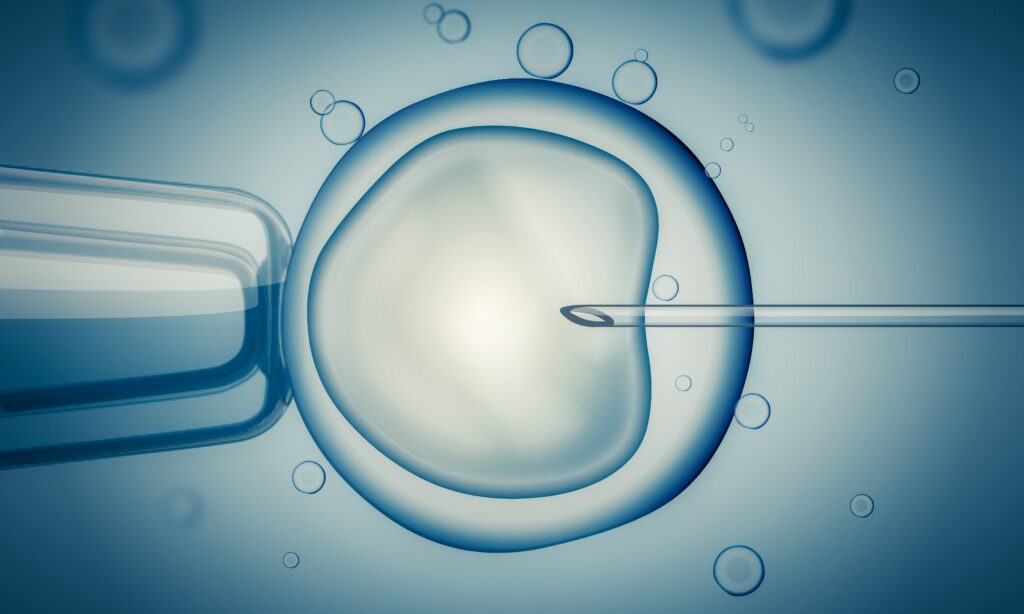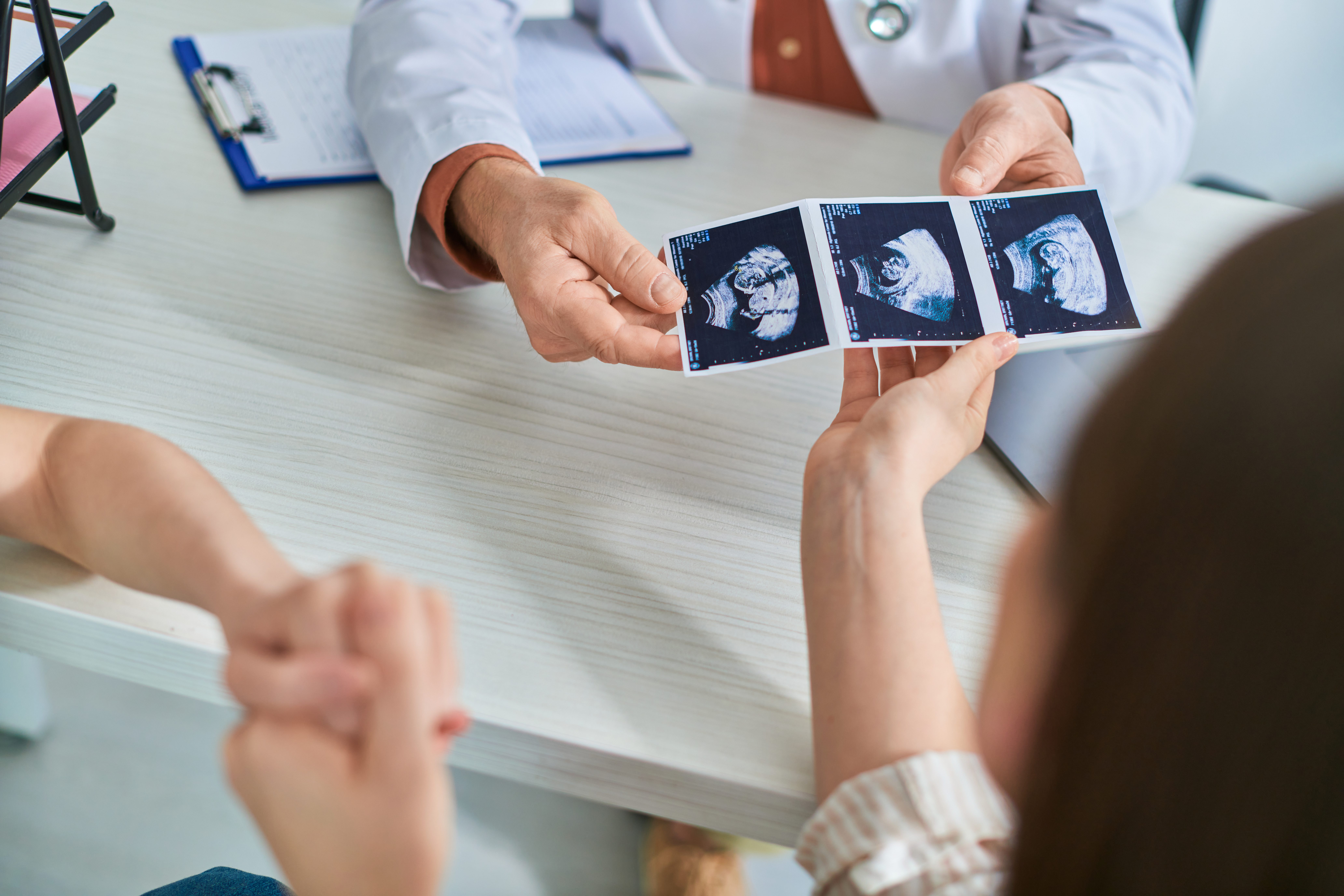


Step-by-Step Explanation of the IVF Process
The IVF process involves several key stages:
- Ovarian Stimulation
The first step in IVF is ovarian stimulation, where the ovaries are stimulated with hormones to produce multiple eggs. This is typically done over 9-12 days using injectable medications. Dr. Chavkin will monitor your progress through ultrasounds and blood tests. - Egg Retrieval (Aspiration)
Once the eggs are ready, they are retrieved in a minor surgical procedure under light sedation. This step takes about 20-30 minutes and is performed in our outpatient surgical center. - Fertilization and Embryo Culture
The retrieved eggs are then fertilized with sperm in the laboratory. The fertilized eggs (embryos) are cultured for 5-6 days, before they are ready for transfer or for biopsy for genetic testing and freezing. - Embryo Transfer
The embryo is selected by Dr. Chavkin and embryologist after discussions with the patient and transferred into the uterus. This is a simple, painless procedure, and it is done in the clinic. Dr. Chavkin’s team will carefully guide you on what to expect after the procedure. You will take hormones to support the pregnancy. - Pregnancy Test
A blood test is done approximately 8-12 days after the embryo transfer to determine if implantation has occurred and that you are pregnant. - Ongoing Monitoring
Dr. Chavkin and her team will do subsequent blood tests and ultrasounds up until about 10 weeks of gestation (8 weeks after the transfer) to make sure the pregnancy is progressing normally.
What to Expect During IVF Treatment
The IVF process involves careful monitoring and multiple visits to the clinic. Here’s what you can expect:
- Hormonal Medications: IVF requires you to take subcutaneous hormone injections to stimulate egg recruitment and development.
- Frequent Monitoring: Regular blood tests and ultrasounds in our office to monitor your hormone levels and follicle growth.
- Embryo Transfer: Hormones will be taken to stimulate the uterine lining development and suppress any further egg recruitment. The embryo transfer is a painless procedure where the embryo is placed by Dr. Chavkin into your uterus.
Throughout the process, Dr. Chavkin and her team will provide support, detailed guidance, and clear communication to ensure you understand each step of your treatment plan.


IVF Success Rates and Success Stories
IVF has a high success rate, especially with personalized care and the expertise of Dr. Chavkin. Success rates can vary based on several factors, including the patient’s age, medical history, and the cause of infertility. Dr. Chavkin uses the latest technology in a state of the art lab to optimize the chances of success for every patient.
Our clinic has seen many success stories, with patients achieving pregnancy after IVF, egg freezing, and fertility preservation. We are committed to helping you achieve your goals with the best possible outcome.
Frequently asked questions (faqs)
How long does the IVF process take?
The IVF process typically takes around 4-8 weeks from the initial consultation to the embryo transfer. This can vary based on your unique treatment plan.
Are there any risks associated with IVF?
IVF is generally safe, but like any medical procedure, there are risks. Some minor risks include discomfort and bruising at injection sites. Some more serious but very rare risks include ovarian hyperstimulation and ovarian torsion. Dr. Chavkin will explain these risks in detail during your consultation to ensure you are fully informed.
What is the cost of IVF?
IVF costs vary depending on several factors, including medication, lab work, and treatment complexity. Dr. Chavkin’s financial counselors will provide a clear breakdown of costs during your consultation.
How many embryos are transferred during IVF?
The number of embryos transferred depends on your age, health, and the number and quality of embryos available. Dr. Chavkin works with you to determine the optimal number of embryos to transfer for the best chance of success.
What happens if the IVF cycle is unsuccessful?
If the IVF cycle is unsuccessful, Dr. Chavkin will discuss next steps with you. This may include repeating IVF, considering the use of donor eggs or sperm, or exploring other fertility treatment options based on your individual needs.
